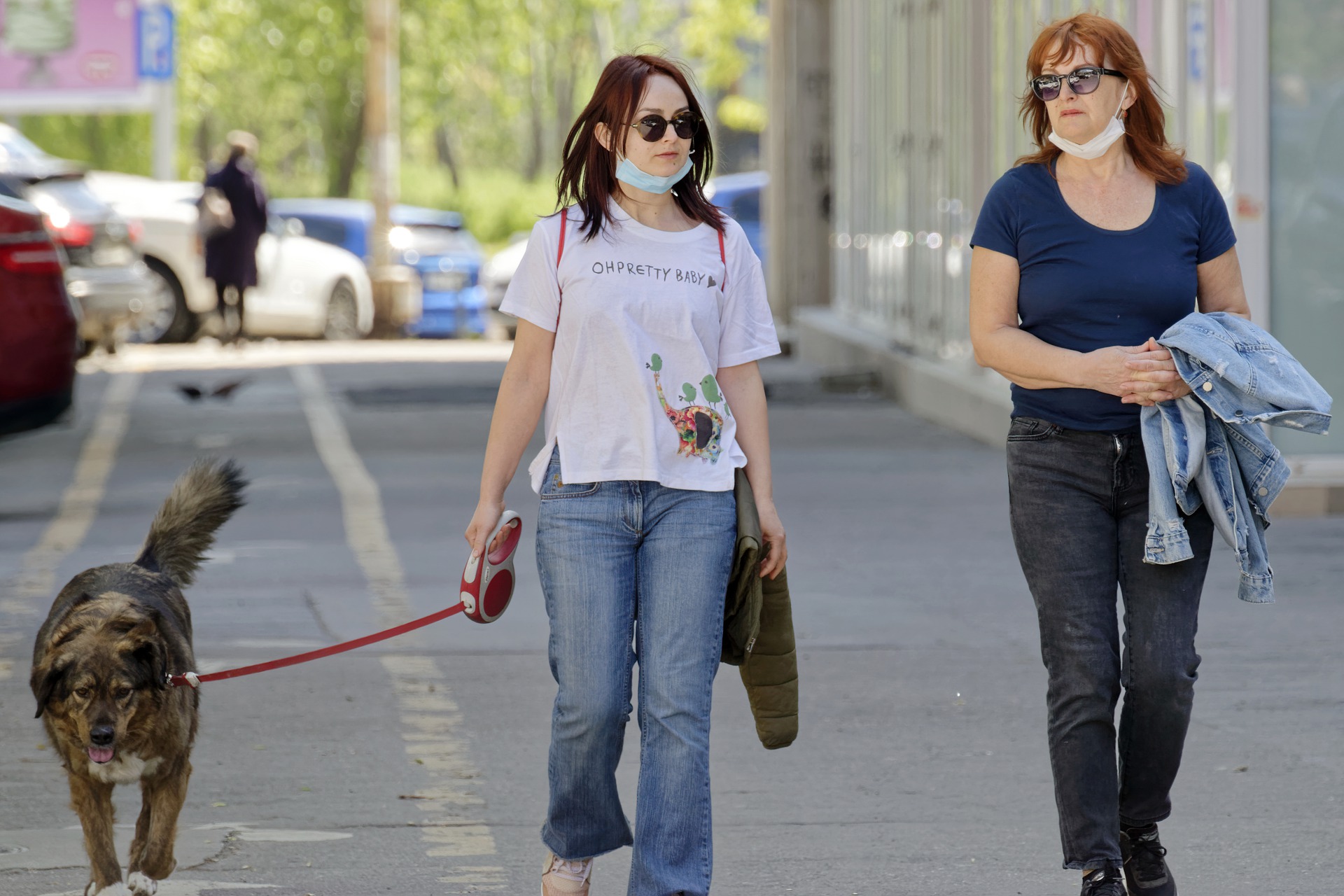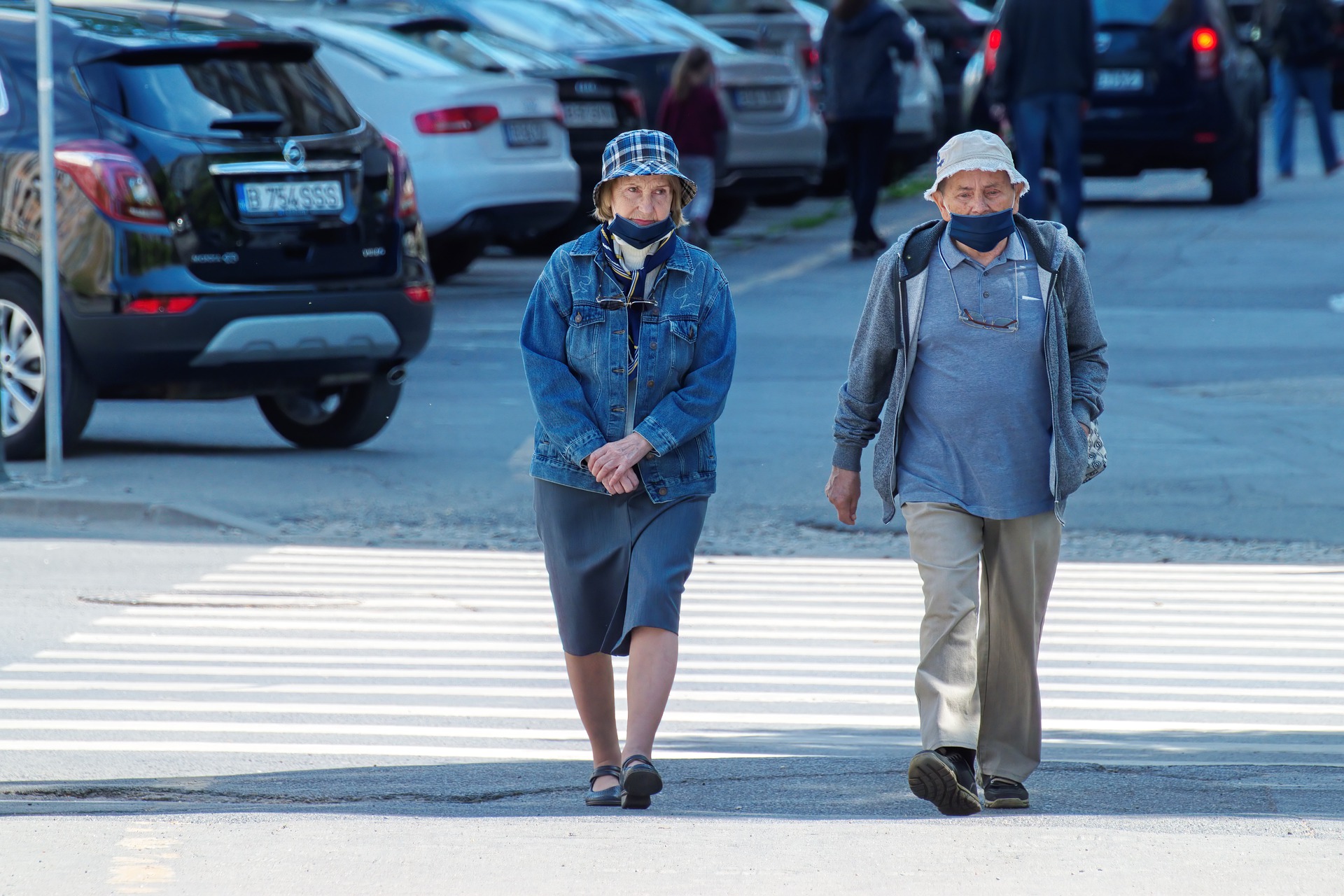The science is real. Wearing a mask/facial covering helps to mitigate the spread of the novel coronavirus that’s currently plaguing our world. Masks, even homemade ones, help to cut down on the number and distance of aerosolized particles released during breathing, talking, coughing, sneezing, singing, and yelling. COVID-19 is spread by these droplets whether a person knows they’re sick or not.
Masks are cheap and easy to use. If everyone wore them in public, the rate of transmission would be significantly lowered. It would be the fastest way to get our businesses open again and return to “normal” life.
Welcome to America.
The USA is 4.25% of the world’s population, yet we account for nearly 30% of the world’s deaths due to COVID-19. More people have died in the USA from coronavirus than any other country in the world. We’re paying a price in lives lost and disability suffered for several avoidable reasons, and one of them is resistance, and sometimes militant refusal, to wear a face mask.
A Gallup Poll performed in mid April found 36% of Americans self reported that they always wore a mask in public, 32% sometimes wore a mask in public, and 31% never wore a mask in public.
Conspiracy theories about mask wearing abound on the internet with claims of self infection, low blood oxygen, and carbon dioxide poisoning. None of these claims have scientific merit or are in line with how the human body works.
Open Twitter or Facebook and you’ll see arguments over mask wearing with the wearers imploring non wearers to wear them, and non wearers firing back with claims of sheep being led to the slaughter and hysteria over a non-existent pandemic.
Alas, the undisputed medical and scientific consensus is that wearing a face mask (and wearing it properly), while not a guarantee that you won’t get sick or spread COVID-19 to another, decreases the risk of infection.

What’s making people react this way?
I researched cognitive biases in relation to an aversion to wearing a face mask during our current pandemic. Cognitive biases are reflexive thoughts that skew how we see the world, and then they drive our behavior. Cognitive biases aren’t based in reality, but they feel real. We all have them and there are dozens of them.
Most prominently, the cognitive bias of Reactance stood out in people who resist pandemic containment tips.
In Reactance Bias, there’s a fear that complying with one request will end in the restriction of all freedoms. So if they wear a mask, what other freedom is next to be taken away from them?
Reactant types are more easily agitated to describe public health recommendations with extreme language like “lock down”, and “loss of freedom”. They become flooded with a swell of righteous motivation to fight for the freedom perceived to be lost.
Reactants may go as far as to actively do something they know is wrong just to feel rebellious or disrespect authority.
Like I said earlier, cognitive biases feel real, but aren’t based in reality.
There are no areas of the USA where people are “locked down” and not allowed to leave their homes.
We follow innumerable other recommendations, rules, and regulations and have not lost our freedom. We stop at stop signs and retain our freedom to drive. Restaurants maintain food safety regulations and retain their freedom to run a business.
Unscrupulous actors in the anti-science, anti-vaccine, and anti-climate change circles have taken advantage of this bias and are pumping out posts, memes, and videos about tyranny and loss of freedom. Each adding to the perceived belief that being asked to wear a mask in public is the final step before a breakdown of democracy.

A possible answer.
I see plenty of people posting and talking about the evidence of the importance of wearing a mask in public. Everyday people and experts have asked politely as well as shamed the non-mask wearers. There’s no absence of information.
It’s natural to think that with information, people will do the right thing. Unfortunately, Reactants, when faced with the evidence of the cost of not wearing a mask, actually dig their heels in deeper and become more noncompliant.
On the flip side, people with a higher level of empathetic concern tended to support recommended tips to contain the pandemic. This included mask wearing as well as social distancing.
Perhaps empathy is the remedy to reactance. Empathy and agreement that nobody likes to wear a mask. Yes, they can feel stifling. Empathy and agreement that we all miss our old lives. We all miss being able to hug our friends and family, and travel with ease.
We can also work to enhance empathy for what it’s like for a high risk person during a pandemic. If you were in their shoes, how would you want society to respond?
It’s part of the human condition to view ourselves differently than others. When we forget about a coffee date, it’s because we’ve been busy and got distracted, but when someone else does it, it’s because they’re an insensitive jerk and a bad friend, right? So to a reactant, it’s easy to label mask wearers as weak or afraid of something they don’t think will affect them.
In the end, when people ask you to wear a mask it’s because we’re all just trying to live our best lives on this planet while we’re here. We all want to protect and keep our families safe. We all want to avoid getting sick, becoming disabled, being hospitalized, or dying. And we want you to be able to avoid those things too. If you can see that, you can see why you’re not losing anything by wearing a mask.
I made a free 5-day Mastering Happiness PDF course, and I want to share it with you! Visit me at christinebradstreet.com where you can get your download for free.
All images open source form pixabay.com.


